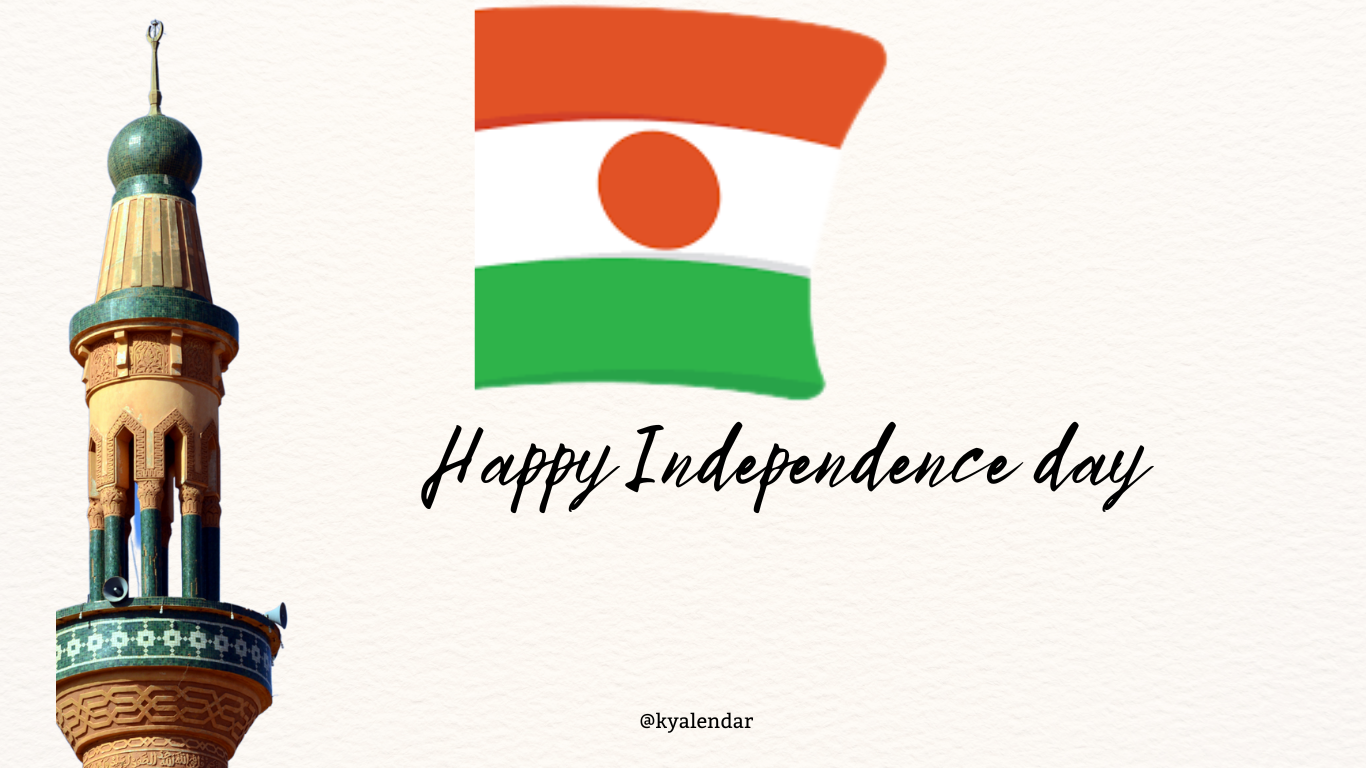
- This event has passed.
Niger: Independence Day
August 3

On August 3rd, Niger celebrates its Independence Day, marking a pivotal moment in its history when the country gained full sovereignty from French colonial rule in 1960. This significant national holiday is an occasion for Nigeriens to reflect on their rich cultural heritage, honour the sacrifices made for independence, and celebrate the progress and achievements of their nation. The day is observed with official ceremonies, vibrant parades, traditional music and dance, and community festivities, all of which foster a sense of unity and national pride. Despite facing ongoing challenges, Independence Day serves as a reminder of Niger’s resilience and its aspirations for continued development and prosperity.
Historical Background:
- Colonial Era: Niger was part of French West Africa from the late 19th century. The French established control over the region through a series of treaties and military campaigns.
- Path to Independence: The push for independence across Africa gained momentum after World War II. Niger, like many other African nations, began to demand self-governance. In 1958, Niger became an autonomous republic within the French Community.
- Independence: On August 3, 1960, Niger declared its full independence from France, marking the end of colonial rule.
Celebrations and Observances:
- Official Ceremonies: Independence Day in Niger is marked by official ceremonies, including speeches by the President and other government officials, highlighting the nation’s progress and paying homage to those who fought for independence.
- Parades and Festivities: The day features military parades, cultural performances, and public celebrations. In the capital city, Niamey, and other major cities, people gather to watch parades that showcase the military, traditional dancers, and schoolchildren.
- Cultural Events: Traditional music, dance, and art are significant aspects of the celebrations. These events highlight Niger’s rich cultural heritage and promote national pride.
- Community Activities: Various community activities, including sports events and educational programs, are organized to engage the public and foster a sense of unity and patriotism.
- Fireworks: In the evening, fireworks displays often light up the sky, providing a festive atmosphere for families and communities to enjoy.
Significance:
- National Unity: Independence Day is a time for Nigeriens to come together and celebrate their shared history and culture, reinforcing a sense of national unity and pride.
- Reflection and Progress: It is also an occasion for reflection on the country’s journey since independence, assessing achievements and recognizing ongoing challenges. Government officials often use this opportunity to outline future goals and development plans.
Challenges and Aspirations:
- Economic Development: Niger remains one of the world’s least developed countries, facing challenges such as poverty, low literacy rates, and limited infrastructure. Independence Day is a time to renew commitments to economic development and social progress.
- Political Stability: The day also serves as a reminder of the importance of political stability and democratic governance. Niger has experienced political turmoil and military coups in its post-independence history, making stability a key focus.
Global Connections:
- Diplomatic Relations: Independence Day is also an occasion for Niger to strengthen its diplomatic ties. Messages of congratulations and support often come from other nations and international organizations.
Independence Day in Niger is a significant national holiday that honours the country’s history, celebrates its cultural heritage, and looks forward to its future with hope and determination.